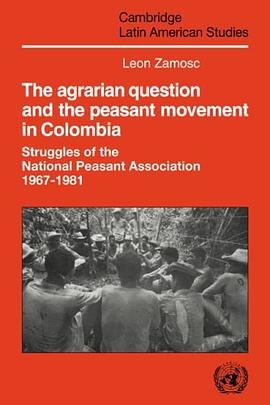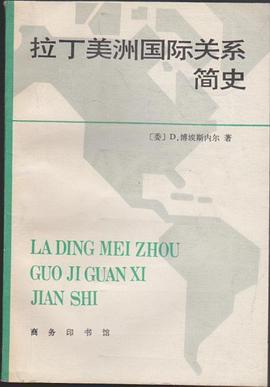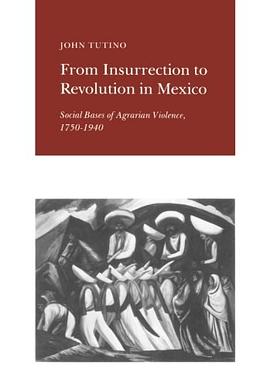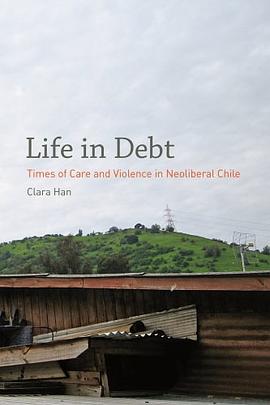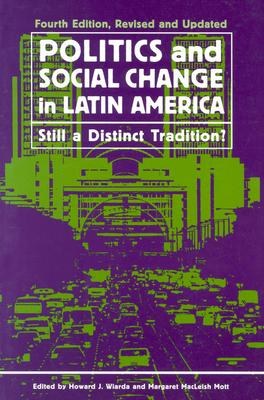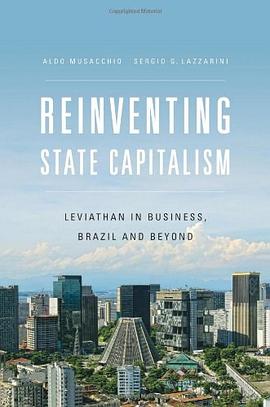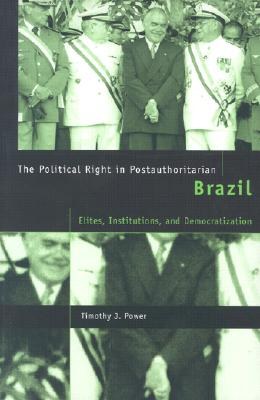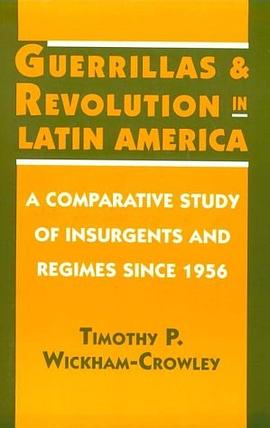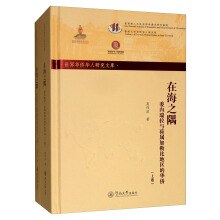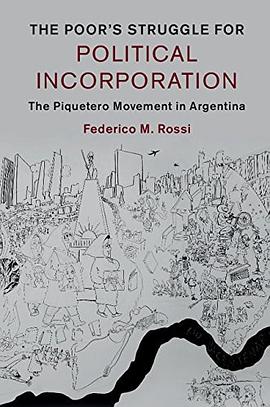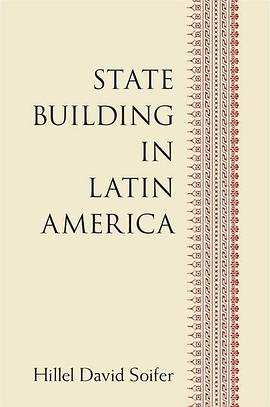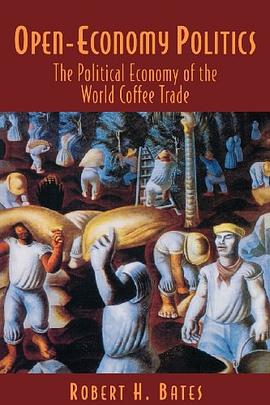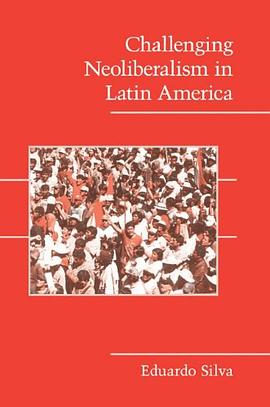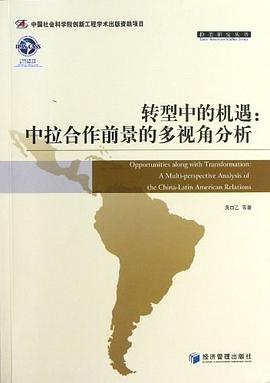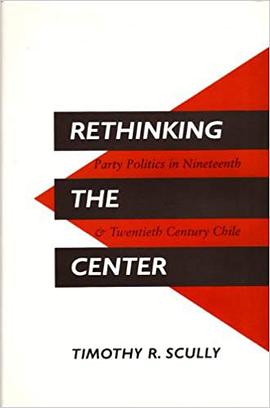

具体描述
From their beginnings in the mid-nineteenth century through the 1980's, political parties in Chile have displayed three discrete ideological tendencies, with two at opposite ends of the political spectrum and at least one in the center. This tripartite distribution made Chile's party system unlike any other in Latin America. How did Chile's distinctive system evolve? This book finds the answer in how three basic social cleavages--religious, urban, and rural--became polarized at three periods of "critical juncture."
Clerical-anticlerical conflict gave initial definition to the party system in the period 1857-61, and continued to shape the political arena long after specific issues had receded into the background. Then, between 1920 and 1932, class conflict in the urban and mining enclave sectors forced party elites to respond to the demands of leaders of middle-sector and working groups for increased political and social power. This was the second of what the author calls Chile's "critical junctures" for party formation. The third, occurring in the period 1952-58, saw the spread of working-class politics into the countryside. Crucial here was a shift in the position of the Catholic Church on class conflict, resulting in the emergence of an important Church-inspired center party.
The book compares the behavior of the political center during the three historical periods and suggests a conceptual framework for understanding different types of center parties. The author also addresses certain questions raised by the emergence and behavior of center parties: What were the implications of the presence of a center party for the patterns of party competition? Why did the center emerge and re-emerge at each critical point in the evolution of Chile's party system? Can this be understood in terms of an underlying coalitional logic, or are factors such as leadership, political choice, and historical accident more useful explanations?
Consistent with this focus on the center is a new account of the key role of the Christian Democrats in the reconstitution of party competition in the late 1980's and early 1990's. The author concludes by offering some observations on the probable shape of party politics--and the role of the political center within it--in tomorrow's Chile.
作者简介
目录信息
读后感
评分
评分
评分
评分
用户评价
这本书犹如一面棱镜,折射出“中心”概念在不同维度和层次上的复杂光芒。作者以其独特的视角和流畅的文笔,引领我踏上了一次关于“中心”的深度探索之旅。我被他对于“中心”的相对性和情境性的强调深深吸引。他并没有试图建立一个放之四海而皆准的“中心”定义,而是强调“中心”的形成和意义,总是与特定的历史、文化、社会语境紧密相连。这意味着,一个在某个时代、某个地方被认为是“中心”的事物,在另一个时代、另一个地方可能就失去了其中心地位,甚至成为了“边缘”。这种“相对性”的认识,让我警醒自己不要轻易地将某种价值观、某种模式视为绝对的真理。同时,他也让我意识到,“中心”并非是一个单一的、扁平的概念,而是存在着多层次的“中心”体系。例如,在某个领域,存在着一个主导性的“中心”,但在该领域内部,可能又存在着不同的次级“中心”或反“中心”。这种对“中心”的细致区分,让我能够更清晰地认识到社会结构的复杂性,以及权力分配的精妙之处。阅读这本书,我感觉自己的思考维度被大大拓宽了,我开始习惯性地去审视“中心”的背后,去探究其相对性和情境性。
评分《Rethinking the Center》是一本极具启发性的著作,它迫使我重新审视那些我曾认为理所当然的概念,特别是关于“中心”的固有观念。作者以一种极其精妙的方式,将历史、社会学、哲学等多个学科的理论融会贯通,为我们描绘了一幅关于“中心”演变的宏大图景。我尤其欣赏他对于“中心”与“权力”之间深刻关联的剖析。他清晰地指出,“中心”的形成和维持,往往离不开权力的支持和运作。权力在建构“中心”的过程中,扮演着至关重要的角色,它塑造了话语、规定了规范、分配了资源,从而巩固了“中心”的地位。同时,他也展示了“中心”并非一成不变,权力结构的变动,也必然导致“中心”的转移和重塑。我深有体会的是,很多时候,我们对“中心”的追随,并非出于对真理的认同,而是源于对权力的依附。这种认识,让我开始警惕那些过于强势的“中心”话语,并鼓励我寻找那些能够挑战和制衡“中心”的力量。这本书不仅是对“中心”概念的理论探讨,更是对我们如何理解和参与权力运作的深刻反思,它让我更加清醒地认识到,在信息爆炸和价值多元的时代,保持独立思考和批判性精神是多么重要。
评分这本书为我提供了一个全新的视角来理解“中心”的含义,它让我摆脱了过去那种将“中心”视为固定和绝对的思维模式。作者的论述逻辑清晰,案例丰富,使得“中心”的变迁过程跃然纸上。我特别被他关于“中心”的“创造性破坏”的论述所吸引。他指出,所谓的“中心”并非仅仅是一个静态的稳定点,而是一个动态的、不断进行自我更新和颠覆的过程。旧的“中心”在被新的力量所挑战和取代的过程中,实现了自身的“创造性破坏”,从而为新的“中心”的出现铺平了道路。这种观点让我意识到,我们所见的“中心”,往往是历史发展到一定阶段的产物,它本身就蕴含着被超越的种子。而那些曾经被视为“边缘”的力量,也可能在适当时机,成长为新的“中心”。这种“颠覆与重建”的循环,正是推动社会不断向前发展的内在动力。我开始反思,我们是否也应该拥抱这种“创造性破坏”,是否应该主动去挑战那些僵化的“中心”,去拥抱那些新兴的、充满活力的力量。这本书,让我对变化有了更积极的认知,让我相信,每一次“中心的动摇”,都可能孕育着新的希望。
评分《Rethinking the Center》是一次智识上的冒险,它邀请我走出舒适区,去审视那些我曾经安然接受的“中心”观念。作者的笔触细腻而深刻,他以一种旁观者的冷静和洞察,揭示了“中心”的多重面貌。我尤其被他对于“中心”的“流动性”和“非确定性”的强调所打动。他告诉我们,“中心”并非一个固定的地理位置,也不是一个单一的权力核心,而是一个不断变化的、流动的概念。它可能随着时间的推移而转移,随着权力的更迭而改变,随着话语的演变而重塑。这种“流动性”的认识,让我警醒自己不要被表象所迷惑,不要轻易地将某个事物视为永恒不变的“中心”。同时,他也让我明白,“中心”的形成往往是复杂力量相互作用的结果,它并非是自然而然的,而是充满了不确定性和偶然性。这种“非确定性”的理解,让我更加珍视那些能够打破常规、挑战既定秩序的力量。阅读这本书,我感觉自己获得了一种更强的“辨别力”,我不再轻易地相信那些被固化为“中心”的观念,而是更加倾向于去探究其背后的形成过程和潜在的变动因素。
评分《Rethinking the Center》是一次令人兴奋的思想旅程,它引导我深入探索“中心”这一概念的深层含义。作者以其广博的学识和敏锐的洞察力,揭示了“中心”的多样性与复杂性。我特别欣赏他对于“中心”与“身份”之间相互作用的论述。他认为,“中心”的形成,不仅是社会结构的体现,更是个体身份认同的重要来源。人们倾向于将自己视为某个“中心”的一部分,通过与“中心”的认同,来确立自身的价值和归属感。然而,他也警示我们,过度地依赖于某个单一的“中心”来定义自我,可能会导致身份的僵化和视野的狭窄。他鼓励我们去拥抱多元的身份认同,去探索那些能够丰富我们生命体验的“非中心”经验。这种关于“中心”与“身份”的互动分析,让我更加深入地理解了个人与社会之间的关系,也让我意识到,如何在保持独立性的同时,与社会建立健康的连接。这本书,不仅仅是对“中心”概念的重新思考,更是对我们如何理解和塑造自我身份的深刻启示。
评分这本书为我揭示了“中心”概念背后隐藏的复杂性,它让我对许多社会现象的理解发生了深刻的转变。作者的论述方式独具匠心,他能够将看似零散的现象,巧妙地串联起来,形成一条清晰的思考脉络。我被他对于“中心”的“话语建构”的剖析所深深吸引。他指出,所谓的“中心”,很大程度上是通过语言、叙事和知识体系来建构和维系的。谁掌握了话语权,谁就能在很大程度上定义什么是“中心”,什么不是“中心”。这种“话语建构”的视角,让我意识到,很多时候,我们对“中心”的认知,并非是对事物本身的认知,而是对由话语构建出来的“中心”的认知。因此,挑战和解构那些固化的“中心”话语,就显得尤为重要。他也强调了“边缘”话语的重要性,那些来自“边缘”的声音,往往能够提供一种不同于“中心”的视角,能够挑战和丰富“中心”的内涵。我深切感受到,这种对“话语建构”的洞察,对于我们理解社会权力运作,以及如何争取更广泛的认同,都具有极其重要的意义。
评分《Rethinking the Center》带给我一种强烈的“看见”感,仿佛之前笼罩在事物之上的迷雾被一扫而空,露出了其内在的真实肌理。作者在剖析“中心”这一概念时,展现了令人惊叹的分析能力,他能够从宏观的社会变迁到微观的个体经验,捕捉到那些微妙而关键的连接点。我尤其欣赏他对于“中心”的动态性以及其内在张力的描绘。他没有将“中心”描绘成一个坚不可摧的堡垒,而是将其看作一个不断吸纳、排斥、融合、转化的过程。这个过程充满了博弈与张力,是各种力量相互作用的结果。我的理解是,所谓的“中心”并非一蹴而就,而是经过漫长的时间和复杂的互动才逐渐形成的。这种形成过程本身就充满了不确定性和偶然性。同时,他也揭示了“中心”并非铁板一块,其内部也存在着各种次级中心、反中心以及不断涌现的新兴力量。这种多层次、多维度的分析,让我对“中心”有了更加立体和 nuanced 的认识。他提出的“再思考”并非是要彻底否定“中心”的存在,而是要我们对其保持警惕,对其产生疑问,对其进行持续的审视。这种批判性的审视,恰恰是为了更好地理解和构建一个更具包容性和适应性的“中心”。阅读这本书,我仿佛获得了一种新的“看世界”的眼镜,它让我能够透过表象,洞察到那些隐藏在“中心”背后的逻辑和运作机制。
评分这本书像一把锋利的解剖刀,精准地剖析了“中心”的形成与流变,让我对许多习以为常的社会现象产生了全新的认识。作者的行文风格既有学术的严谨,又不失文学的感染力,使得论述既深刻又易于理解。我最被打动的是他对于“中心”的建构性理解,即“中心”并非天然存在,而是人为建构的结果。这种建构过程中,往往包含了权力、话语、历史叙事等多种因素的交织。他通过对不同历史时期、不同文化语境下“中心”演变的梳理,清晰地展示了“中心”是如何在特定条件下被确立、被强化,又是如何在这种确立和强化中,排斥、边缘化了其他可能性的。我的感受是,很多时候,我们对“中心”的认同,并非源于其天然的优越性,而是源于一种习惯性的接受和被灌输。这本书则鼓励我们去质疑这种习惯,去探究“中心”背后的权力运作和话语建构。这种质疑,对于个人而言,是摆脱思想束缚,获得独立思考能力的关键;对于社会而言,则是实现进步与变革的驱动力。我开始反思,我所处的文化、我所接受的教育,是否在某种程度上也在无意识地塑造着一个特定的“中心”,而我是否又过度地依赖于这个“中心”来定义自我和认识世界。
评分《Rethinking the Center》这本书是一场思维的盛宴,让我沉浸其中,久久无法自拔。作者以其深邃的洞察力,为我们揭示了“中心”的复杂性和多面性,颠覆了我过去对“中心”的简单化认知。他并没有简单地否定“中心”的意义,而是强调对其进行“再思考”,这本身就充满了一种建设性的力量。我特别赞赏作者对于“中心”的变迁史的梳理,以及他如何将这种变迁与具体的历史事件、社会思潮紧密联系起来。他让我明白,“中心”并非一成不变的静态概念,而是一个动态演进、不断被重塑的过程。无论是从地理空间的转移,到文化话语的更迭,再到权力结构的调整,都深刻地反映了“中心”的流动性。我的体会是,过去我总以为“中心”是稳定可靠的,是方向的指引。但这本书让我看到,“中心”的稳定往往是以牺牲多样性为代价的,而“中心”的转变,也往往是新的可能性涌现的契机。作者提出的“去中心化”的思考,并非意味着混乱和无序,而是指向一种更加多元、更加分散、更加具有弹性的新形态。这种新形态,可能更加适应我们当下这个快速变化的世界。
评分这是一本让我感到耳目一新、颠覆了我固有认知的作品。在阅读《Rethinking the Center》的过程中,我仿佛置身于一个全新的思想空间,被作者的深刻洞察和独到见解所折服。他对于“中心”这一概念的重新审视,绝不仅仅是停留在字面上的定义,而是深入到社会结构、权力分配、文化思潮的方方面面。我一直以为“中心”是一个固定不变的、理所当然的存在,是衡量一切的标准,是稳定与秩序的基石。然而,这本书让我开始质疑这一切。作者通过大量的案例分析和理论阐释,生动地揭示了“中心”是如何被建构、被维持,又如何在历史的长河中悄然演变甚至瓦解的。我尤其被他关于“边缘”与“中心”相互依存、相互塑造的论述所吸引。过去,我习惯性地将“边缘”视为“中心”的对立面,是缺乏力量和影响力的区域。但这本书让我明白,恰恰是“边缘”的存在,在不断挑战和丰富着“中心”的内涵,甚至在某些时刻,正是“边缘”的力量在驱动着“中心”的转型。这种“去中心化”的视角,不仅是一种智识上的启迪,更是一种对现实世界更深刻的理解。我开始审视我所处的环境,我所接触的信息,我所遵循的规范,它们是否都过于依赖某种单一的“中心”?这种思考让我感到一种解放,仿佛从僵化的框架中挣脱出来,看到了更广阔的可能性。这本书不仅仅是理论的探讨,更是对我们每个人如何在这个复杂多变的世界中找到自己位置的深刻反思。
评分智利政党体制中的中间党 Scully, Timothy Richard. 1989. Cleavages, Critical Junctures, and Party Evolution in Chile: Constituting and Reconstituting the Center. Ph.D. dissertation, University of California, Berkeley.
评分智利政党体制中的中间党 Scully, Timothy Richard. 1989. Cleavages, Critical Junctures, and Party Evolution in Chile: Constituting and Reconstituting the Center. Ph.D. dissertation, University of California, Berkeley.
评分智利政党体制中的中间党 Scully, Timothy Richard. 1989. Cleavages, Critical Junctures, and Party Evolution in Chile: Constituting and Reconstituting the Center. Ph.D. dissertation, University of California, Berkeley.
评分智利政党体制中的中间党 Scully, Timothy Richard. 1989. Cleavages, Critical Junctures, and Party Evolution in Chile: Constituting and Reconstituting the Center. Ph.D. dissertation, University of California, Berkeley.
评分智利政党体制中的中间党 Scully, Timothy Richard. 1989. Cleavages, Critical Junctures, and Party Evolution in Chile: Constituting and Reconstituting the Center. Ph.D. dissertation, University of California, Berkeley.
相关图书
本站所有内容均为互联网搜索引擎提供的公开搜索信息,本站不存储任何数据与内容,任何内容与数据均与本站无关,如有需要请联系相关搜索引擎包括但不限于百度,google,bing,sogou 等
© 2026 book.wenda123.org All Rights Reserved. 图书目录大全 版权所有


